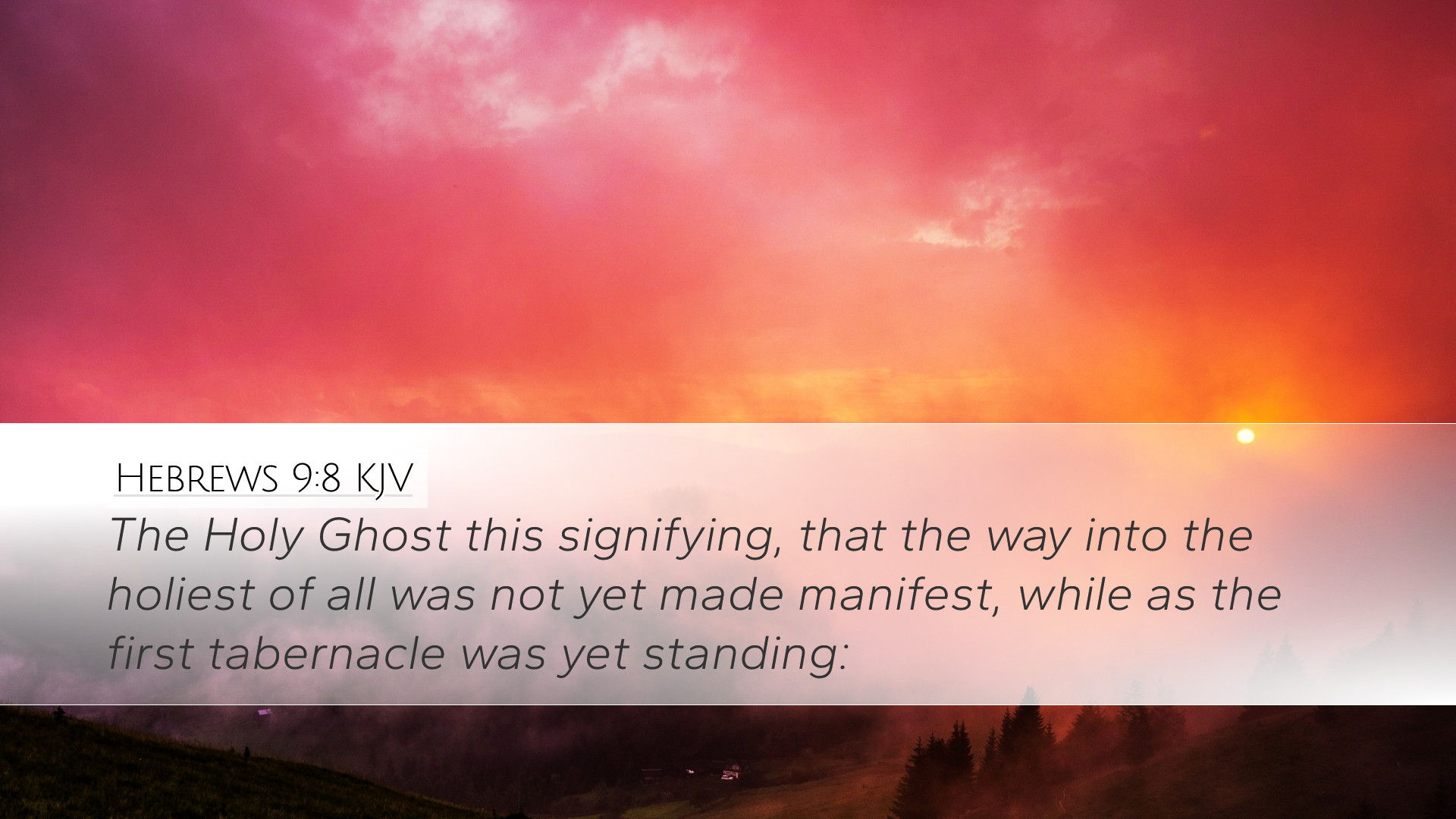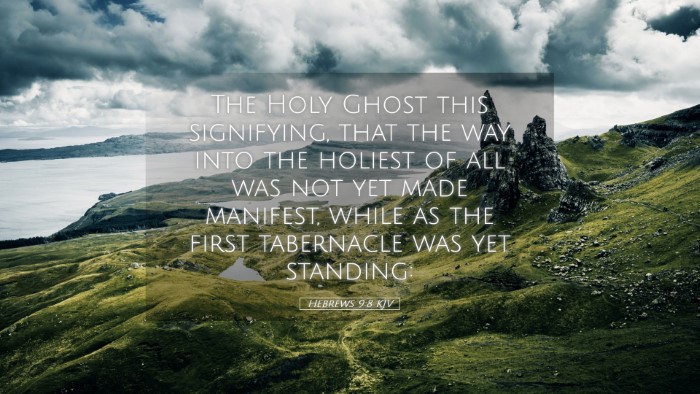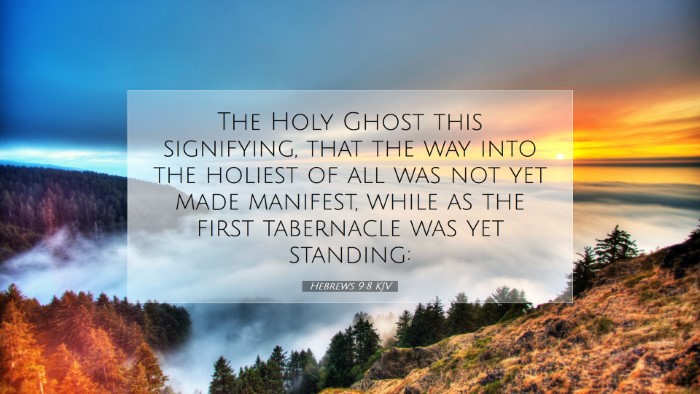Commentary on Hebrews 9:8
Verse: "The Holy Spirit indicating this, that the way into the holiest of all was not yet made manifest while as the first tabernacle was yet standing."
Introduction
Hebrews 9:8 is a profound verse that encapsulates the transition from the Old Covenant to the New Covenant. It reveals the limitations of the ceremonial system and emphasizes the roles of the Holy Spirit and Jesus Christ in the unfolding of God's redemptive plan.
Contextual Analysis
This verse occurs within a larger discourse on the differences between the old and new covenantal systems, specifically focusing on the tabernacle's significance. The author of Hebrews is addressing a community familiar with the Jewish sacrificial system, aiming to illustrate how Christ's sacrifice fulfills and transcends these old practices.
Matthew Henry's Insights
Matthew Henry remarks on the key idea that the Holy Spirit, being the primary author of Scripture, is signaling the limitations of the first tabernacle. He reflects that the 'holiest of all', which refers to the Holy of Holies, remained inaccessible while the old covenant and its rituals were in place. The way into God’s presence was hidden, illustrating humanity’s separation from God before Christ's atoning work.
Henry emphasizes that the tabernacle was a shadow of the heavenly realities, serving as a reminder of the need for a more profound access to God which would come through Christ. It was a temporary structure, symbolizing the old covenant's temporary nature which could not ultimately cleanse or perfect worshippers.
Albert Barnes' Commentary
Albert Barnes expands on the implications of the phrase "the way into the holiest of all was not yet made manifest." He explains that during the era of the first tabernacle, the full revelation of God’s presence was concealed. The rituals and the separation of the various sections of the tabernacle represented a barrier between God and humanity.
Barnes points out that the term ‘made manifest’ indicates that God’s presence and the means to approach Him would only be fully revealed through Jesus Christ. The symbolic nature of the tabernacle highlighted the necessity of the New Covenant for true reconciliation with God. The author's emphasis on the Holy Spirit's role underscores the divine plan, where the Spirit guided the understanding of these truths that were previously shrouded in mystery.
Adam Clarke's Remarks
Adam Clarke provides a detailed examination of the phrase "the way into the holiest of all." He suggests that the reference to the Holy Spirit indicates that God has always been actively involved in revealing the path to salvation and holiness.
Clarke emphasizes the significance of divine timing in salvation history. He notes that the first tabernacle served its purpose but was not designed to be the final means of communion with God. The temporary nature of the tabernacle was a divine setup for a greater reality which would be established through the sacrifice of Christ, allowing direct access to God for all believers.
Clarke also highlights the importance of understanding the Old Testament rituals in light of Christian revelation. These rituals, while meaningful in their time, ultimately pointed to the greater fulfillment in Christ. The opening of this path signifies the empowerment of believers to approach God boldly through Jesus, reflecting the heart of the new covenant.
Theological Implications
This verse raises key theological discussions regarding the nature of covenant relationship, the role of the Holy Spirit, and the significance of Christ’s sacrifice. Understanding the limitations of the first tabernacle allows pastors and theologians to better explain the profound nature of grace offered in the New Covenant.
- Covenantal Shift: There is a clear shift from the limitations of the Old Covenant to the accessibility of the New Covenant through Christ.
- Role of the Holy Spirit: The Holy Spirit’s work in revelation underscores the need for divine illumination in understanding Scripture.
- Sacrifice of Christ: Christ’s atoning work is central, as it fulfills the types and shadows of the Old Testament.
- Accessibility to God: Believers now have direct access to the Divine, which transforms the worship experience.
Conclusion
Hebrews 9:8 serves as a pivotal reminder of the transition from the old system of worship to the new reality offered in Christ. The insights from Matthew Henry, Albert Barnes, and Adam Clarke illustrate that understanding this verse is crucial for comprehending the richness of God’s salvation history.
As pastors, students, and scholars reflect on this passage, they are encouraged to recognize the increased access to God that has been granted through the work of the Holy Spirit and the sacrifice of Jesus. This understanding not only deepens theological insights but also enriches the experience of worship and the pursuit of holiness.


